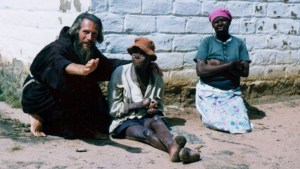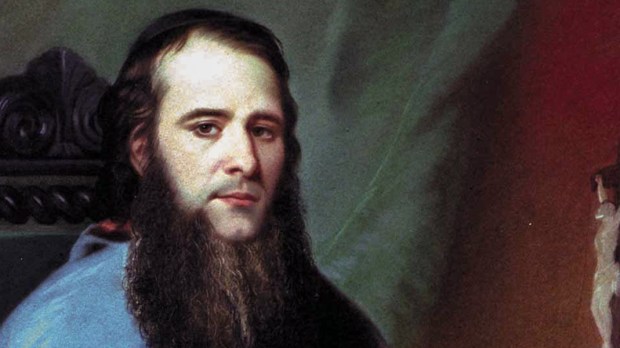His full name was Melchior de Marion Bresillac. He was born in a town called Castelnaudary, located in southern France, on December 2, 1813, and was the oldest of five children.
Melchior’s father wanted his boy to pursue a military career. But Melchior felt a special calling to the religious life and, when he was 19, informed his father of his wishes to become a priest. His dad accepted his son’s wishes, and, in 1832, Melchior entered the minor seminary at Carcassone to pursue his vocation. He was ordained to the priesthood on December 22, 1838, and assigned as an associate pastor to his hometown parish, the Church of St. Michael, in Castelnaudry.
Father Bresillac had a keen mind and prepared and delivered excellent sermons. He reached out to the sick and marginalized, taught catechism to the children, and had immense patience and understanding for others, especially the youth. However, there was one thing nagging at Father Bresillac. He harbored a strong desire to serve in the missions.
In 1840, Melchior made a retreat with the Jesuits at Avignon. It was at this retreat that he made up his mind to follow his missionary calling. The young priest expressed his desires to his bishop (and his parents) about becoming a missionary. He was strongly opposed, but Melchior knew that his calling to this ministry was from God and that he had to pursue it.
Melchior had to summon his courage to resist the heartbreak his mother was feeling. And his father was unyielding in his objections. The bishop refused to give his permission. The young priest never wavered and continued praying and trusting in the Lord. Eventually, both his parents relented. His father wrote him a letter that read, “Go, my dear son. Go where heaven is calling you. Now, I recognize the voice that summons you. May he protect you. Be happy. I submit!”
Melchior now wrote to his bishop for final approval. The bishop refused. Melchior wrote again and was denied again. The third time was the charm, because the bishop gave Father Melchior the permission he sought. In 1841, Father Melchior Bressilac left St. Michael’s Church and entered the Paris Foreign Mission Society. After nine months of missionary training, Father Melchior Bressilac was assigned to Pondicherry, India. He arrived there on July 24, 1842.
Father Melchior spent a few months learning about the culture and studying the Tamil language. The priest quickly realized the missionaries were resented; they were seen as wanting to impose European ways on the natives of the country. And the caste system, so opposed to the Christian understanding of the human person, hindered evangelization greatly. Contact among the castes was forbidden, and it went against all things regarding the teaching of “love your neighbor.” Creating Christian communities was a daunting task.

Read more:
Another saint for England? John Bradburne gave his life for lepers in Africa
Father Melchior spent 12 years in India. He was elevated to Bishop of Prusa, and he was determined foster priestly vocations among the indigenous people. He wanted the Indian people to have their own clergy, with the Europeans acting as assistants. The resistance to his objectives was fierce. Bishop Bressilac was disgusted that so many of his own priests enabled the caste system. Eventually, he felt he should resign his post and return home to France.
But his desire to serve in mission lands continued. Bishop Bressilac wrote to the Congregation for the Missions in Rome. He asked if he could begin a mission in Africa in order “to go to the most abandoned.” His request was granted, and on February 29, 1856, Rome gave him their permission to start a society. He founded the Society of African Missions and spent the next two years recruiting and training new missionaries. In 1858 the first SMA missionaries set forth for the new Vicariate Apostolic of Sierra Leone in western Africa.
A total of six missionary priests (including Bishop Bressilac) were in Freetown, Sierra Leone, on May 14, 1859, when a yellow fever epidemic broke out. Undaunted, the priests and bishop stayed to treat the ill. They all died, including Bishop Bressilac, who passed away on June 25, 1859, six weeks after their arrival.
Father Augustine Planque and some seminarians back in France were the only members of the new order left. Father Planque determinedly continued forward with Bishop Bressilac’s missionary work.
Today the Society of African Missions has provinces spread throughout Europe, the Philippines, and across the African continent.
Bishop Bressilac was deemed a man of “heroic virtue” and declared Venerable by Pope Francis on May 26, 2020.

Read more:
Is St. Therese the patron of missions because of this Canadian missionary?

